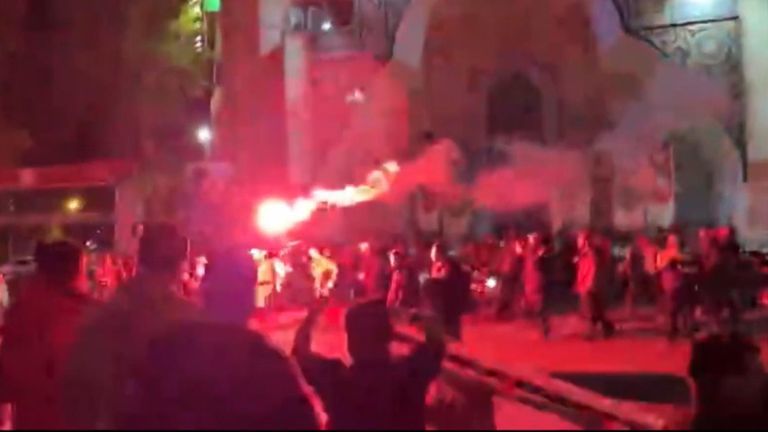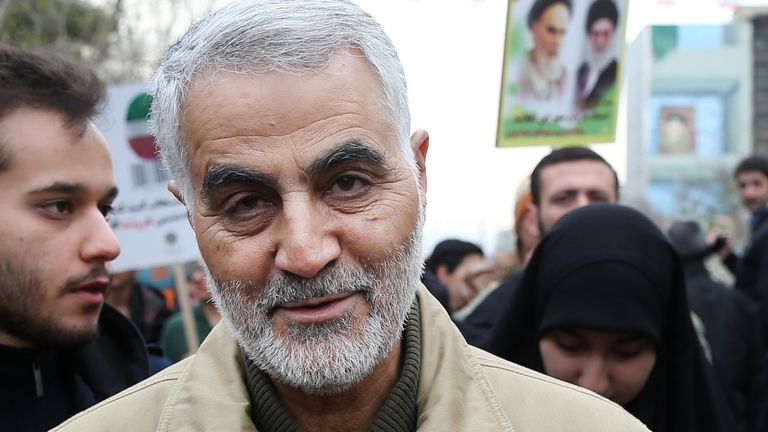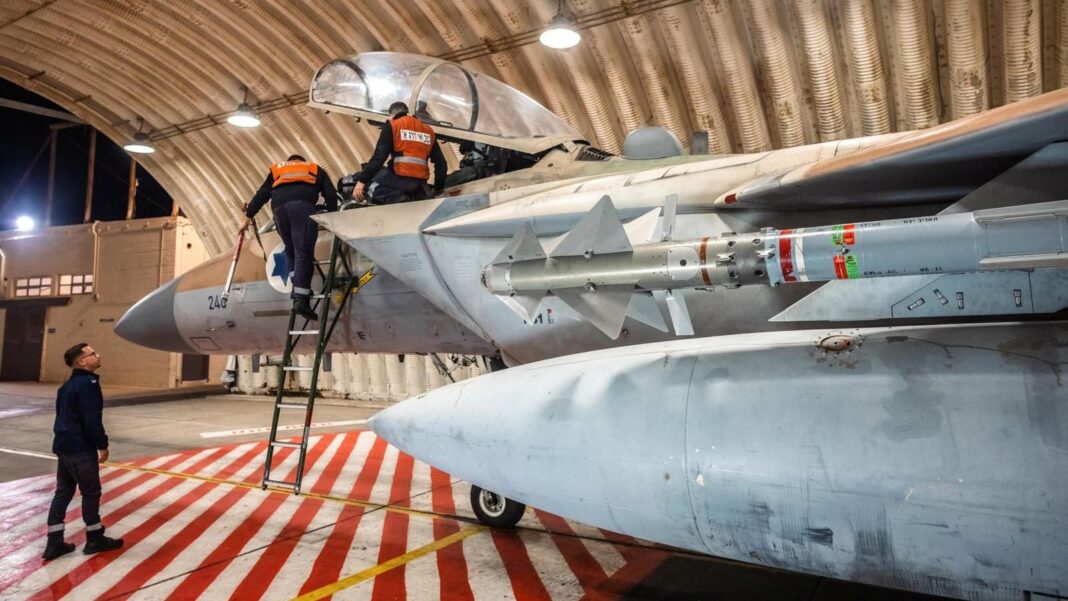In a display of solidarity, the United States, Britain and France helped to defend Israel from an unprecedented barrage of Iranian missiles and drones overnight.
At the same time, the allies are working just as hard to try to prevent what is already the most dangerous crisis in the Middle East in years from escalating into all-out war.
That might well prove an impossible task given the scale of the attack – with a total of more than 300 ballistic and cruise missiles and explosive drones fired from inside Iran as well as from Lebanon, Iraq, Syria and Yemen.
Three of those four nations contain militias that are closely allied with Iran, while Syria’s regime is a strong Iranian partner.
“It’s what Iran has been preparing for years,” an Israeli source said.
The Israeli military, supported by its allies, managed to intercept the vast majority – 99%, according to a spokesperson – of the incoming strikes, but it will be very hard for embattled Israeli Minister Benjamin Netanyahu to do nothing to Iran in return.
For its part, Tehran has made clear that its forces are ready to strike again with even greater force should Israel fight back.
It makes the next steps by either side crucially important.
Please use Chrome browser for a more accessible video player
2:19
Will Israel respond to Iran’s attacks?
Britain, the US and other allies have been urging containment ever since the likelihood of a direct Iranian strike on Israel emerged after Tehran accused the Israeli military of attacking its consulate in the Syrian capital of Damascus, killing two Iranian generals and seven other members of the Islamic Revolutionary Guard Corps.
A Western source told me last week that the Iranian regime had been signalling that it “has to do ‘something’ but it’s made clear it wants to avoid a collision with the US”.
However, the scale of the attack will dictate the likelihood of an Israeli response and the barrage on Saturday night was large – even though largely ineffective.
While calculating what to do in response, Israel will be mindful of the need to continue its war against Hamas in Gaza. An immediate wider regional conflict against Iran would draw up a lot more of its resources.
Also, neighbouring countries such as Jordan have made clear that they want to avoid escalation.
Then again, failing to respond to such an assault would potentially make Israel look weak in a neighbourhood where a number of its neighbours deny its right to exist.
Please use Chrome browser for a more accessible video player

0:39
Celebrations in Tehran after attack on Israel
Read more:
Biden reaffirms US ‘ironclad’ support of Israel
What is Israel’s Iron Dome defence system?
The crisis has echoes of January 2020 when the US military killed top Iranian general Qassem Soleimani in a drone strike in Baghdad.
Iran launched a revenge attack with missiles against US forces in Iraq but then-president Donald Trump opted against retaliating further as no American forces had been killed – a move that acted to diffuse the situation.

Qassem Soleimani. Pic: AP
The circumstances now are very different as Iran chose to hit Israel directly in revenge for the Syria strike. But there have not been mass casualties – just huge concern.
In a sign of the delicate balancing act being performed by Israel’s allies, who retain support for the Israeli right to self-defence while also wanting to avoid full-scale war, the UK said it deployed jets overnight in a slightly less direct way than the Americans.
Additional Typhoon warplanes were sent to a Royal Air Force base in Cyprus to bolster a long-running mission in the region to counter the threat from Islamic State in Iraq and Syria – known as Operation Shader.
Some of these aircraft were then operating overnight, backfilling a role that US jets would have otherwise been doing, while the American warplanes were deployed directly in support of the Israeli military to counter the Iranian onslaught.
The RAF jets were given additional permissions to be able to shoot down any Iranian drones or missiles if necessary within their area of operations – so not over Iranian or Israeli airspace.
Explaining its movements, the Ministry of Defence said in a statement: “We have moved several additional Royal Air Force jets and air refuelling tankers to the region.
“These will bolster Operation Shader, which is the UK’s existing counter-Daesh operation in Iraq and Syria. In addition, these UK jets will intercept any airborne attacks within range of our existing missions, as required.”







